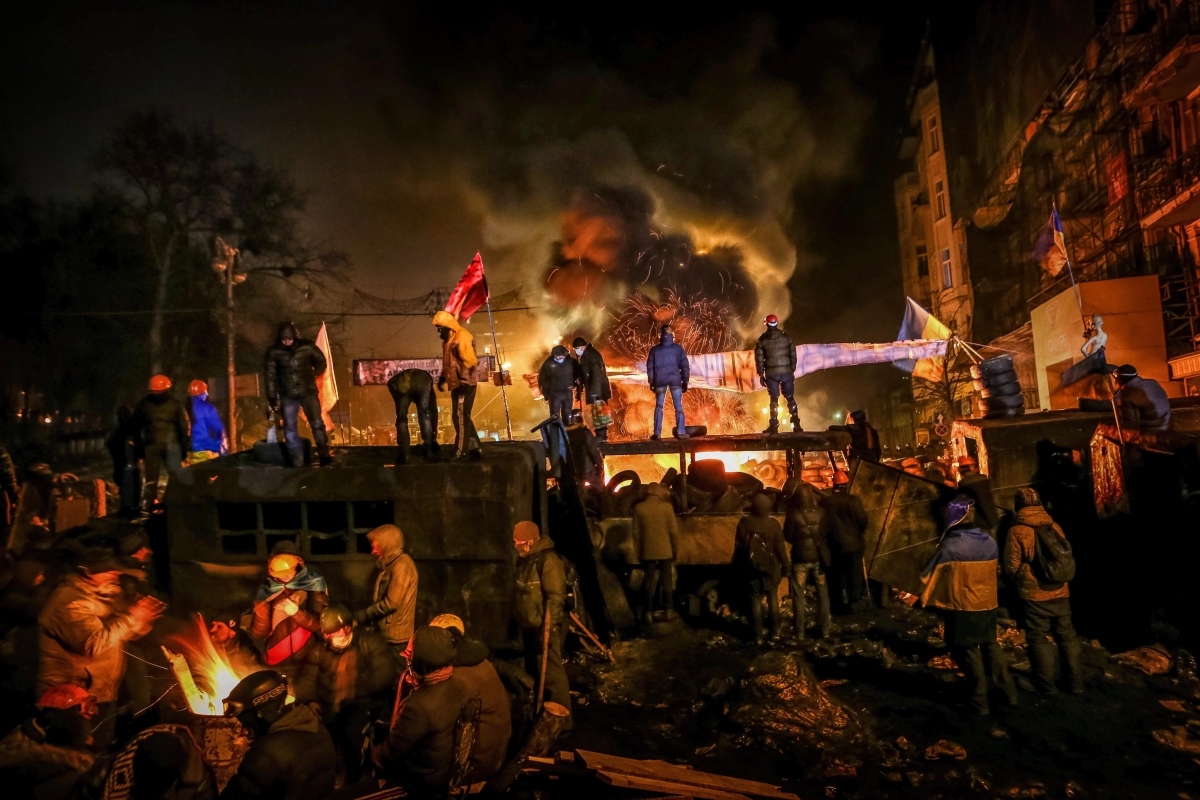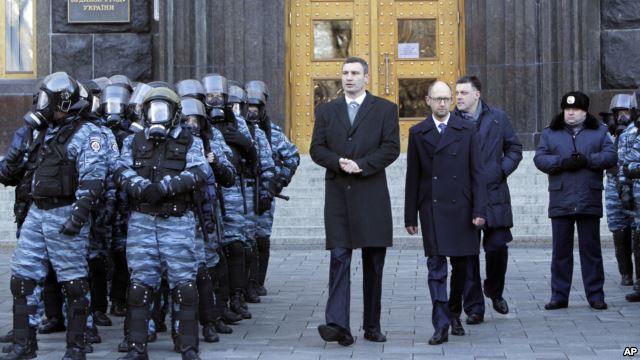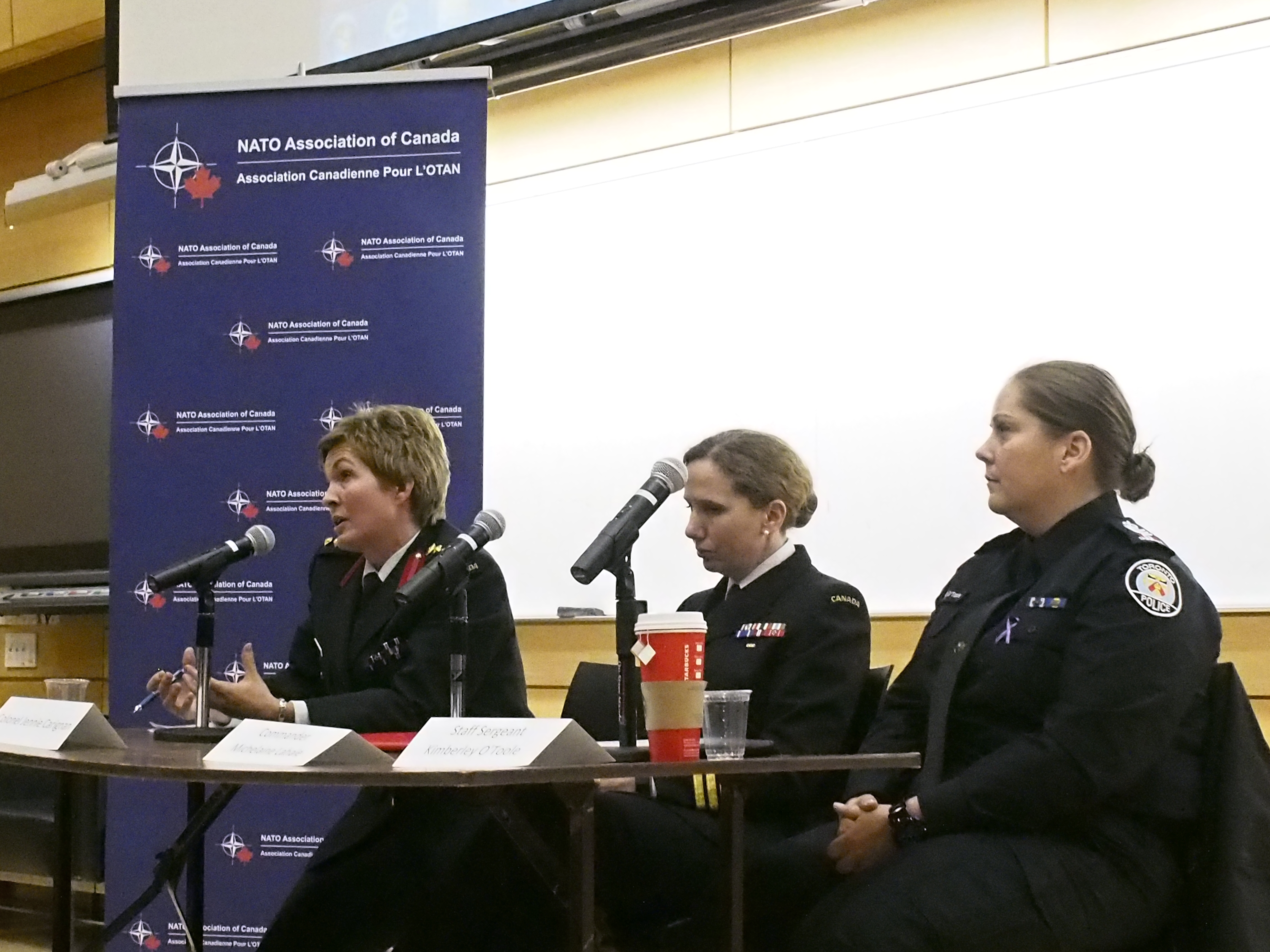Winter on Fire: Ukraine’s Fight for Freedom is an in-depth documentary of the bloody Ukrainian uprising in Kiev’s Maidan Square in the winter of 2013-14 that resulted in the removal of Russian-backed President Viktor Yanukovych. Director Evgeny Afineevsky talks about his riveting experience and the thought process behind his latest film.
First of all, congratulations on your success at TIFF! I’m very happy you were able to share your story with us through Winter on Fire. For those of us who haven’t watched it, what was the message you were trying to convey with this documentary? Was there something specific you had in mind?
For me, the most important thing that I try to do is to pay tribute to the people and tell their true story. It is like a historical monument to the people who are no longer with us. But it is also a tribute to journalism and everyone who was there at Maidan. This movie is an example to educate younger generations, to visualize the role models the younger generation should take. Because the guys and girls who were with me in Maidan, they’re the true heroes, and they’re the true role models of today’s young generation.
The message I’m trying to portray is that you don’t have to born in the country to be a patriot. For example Serhiy Nigoyan was never born in this country, but he easily showed patriotism. Because he was living in this country, it was his future, it was the future of the nation that lives around him. So he believed in this and he gave his life. So it’s an amazing story and he’s Armenian.
Another thing I want to show is that people are the power. The government needs to remember, that at the end of the day they are chosen by the people. They do not need to betray people’s trust. They need to represent people because they are chosen by the people! It’s a great message that comes out of this move. And also I wish that the entire world will follow what happened in Ukraine. Not follow in terms of revolution, but follow in terms of unity.
I noticed there were a lot religious leaders featured, can you speak more on that?
Maidan shows a great unity between young and old, between all nationalities. Muslims, Jews, Buddhists, Christians – all of them came together with respect to each other. This is the first time we can see something like this. I wish the Middle East can follow this great example. I wish this was formed in Europe. I want the entire world to see that people can live in peace in order to achieve great goals. Now for the first time we see the church working with the people. Entire different faiths came to Maidan and were with the people. The church, which is usually an instrument of the politicians was there for the people and was supporting them. Nobody was forced to be a part of these churches. All the churches opened their doors as homes for people who were in Maidan. This is the beauty of this movie.
Now you can see leaders of different religions on a stage together. In which country you can see something like this? You can also see different social groups in Maidan. I saw people who came in Bentleys and ladies in their high heels who were coming to Maidan and going to the tents and cutting up sandwiches after work. You could see people who were coming with food from the train station because they came from some village to be there. It’s the beauty of this single unity I wish the entire world can live in.
Canada is home to the third-largest Ukrainian population behind Ukraine itself and Russia. Did you find that your documentary was received here differently than in other places you’ve showed it?
Of course, I’ve been received here warmly thanks to the Ukrainian community here. People were applauding because for them, it was a moment where they went back in history. It was a time machine that took them back to Maidan. It was only due to this movie we could do something like this. I think they were really proud to be a part of this moment. It is important to me as a filmmaker that the stories are appealing to the people, that the situation is appealing to the people across the globe, not only to Ukrainian community here but also at the same time across the globe.
I’d say that most people were shocked by the brutality in some of the scenes. Did you yourself face any challenges or opposition shooting and releasing this film?
I did not have any problem releasing the movie or the footage. Again, I don’t want to make a statement about who did what. I will tell you something: when I was doing this movie the investigations were still ongoing, and to make a statement, you need to have physical proof and finish the investigation with the results. I don’t have this in my hand so I don’t want to tell lies to the people because I tell people what I saw. I tell them the true story from the conflict zone through the eyes of my filmmakers, through the eyes of my friends. I can’t speak for everyone in my profession, but I am trying to stay honest and tell the story of the people who were there with me. I can’t state something I’m not able to confirm 100 percent.
Your documentary focused on some Ukrainian youth mired in the conflict, some of them as young as 12. Do you remain in contact with them, and can you say what has become of some of them now?
Roma (the 12 year-old) is at Anti-Terrorist Operation (ATO) where all the fighting in Donbass is happening. Unfortunately, he didn’t want to go home, he is fighting. A lot of friends of mine tried to adopt him, but he is not a home pet, he is a child of war. He was like a character during the French Revolution, a Gavroche. He is a young kid that was a hero, so he was kind of the Gavroche of Ukraine. He was at Maidan until the last day then he went to be in ATO. He’s a soldier, it’s amazing. The 16 year-old is now 18. He lives in Lviv. He’s a brilliant musician and I keep in touch with him. He is not quite open to other people. In Maidan we were one family. It was easy to communicate because we trusted each other. Roma is a superstar – he loves it. But some people are isolating themselves away from the publicity after Maidan. They were never trying to find PR. They were fighting for their freedom of speech, for their future.
Has there been justice for the people who were killed in the protests? How are the families moving forward with their loss?
Last year Poroshenko made them official heroes of the country. I know the investigation is still ongoing and the families are unhappy. Again, it’s the process that the country is going through, but I don’t have anything to say to that. I think my contribution to this situation is this movie. They are giving some money to the families, but again I don’t think money will bring their kids back. It’s justice that will make people feel more comfortable and trust their government. I think this is what makes people happy in that situation.
Your documentary captures the moment the protest turned from a peaceful one to an uprising when the government enacted repressive laws to deter protesters. What were you thinking at that time? Were you afraid?
First of all, fear does not exist in Maidan. Fear existed outside of Maidan but not in it. The unity was kind of making everyone strong. I don’t think that the laws brought the situation to violence. I think the violence started on November 30, this is the first step that pushed everybody kind of to the extreme. Don’t forget that before that it was a peaceful protest. The kids were trying to voice themselves and bring attention of entire world for this situation, that they want to live in a great future, not to go back. We were born in an independent country. Ukraine is a young independent country, and wants to live as a part of Europe. Nobody was expecting the police brutality that night. As soon as the violence unfolded, the conflict escalated. I think this was the last drop in the glass and that’s why people stood against the dictatorship, against the regime, against the police state. At this moment the anger started to grow and the situation started to grow as the big revolutionary movement.
Can you comment on what you foresee happening in Ukraine?
I think it’s not an appropriate question to ask a filmmaker. My team is there right now in the military zone, so I know about the situation. I am following it, but I’m not a political analyst. I don’t want to mislead anybody.
Do you see yourself going back to document the next chapter in Ukraine, or do you have other projects in mind?
I have other projects in the future and all of them are regarding injustice. There is a lot of injustice in the world and I want to voice these stories on behalf of the people who do not have this ability. I am an international filmmaker and I want to bring the voices of people who don’t have one. Ukraine is something dear to me, I have a lot of friends there, but there are so many interesting and fascinating stories I want to bring to the attention of the world. I am going back to the scripted feature and I’m also working on documentaries, so a couple of projects right now.






